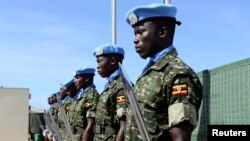“[Today,] nearly 100,000 peacekeepers and 17,000 civilian personnel are deployed in peacekeeping missions around the world,” U.S. Alternate Representative for Special Political Affairs to the United Nations Ambassador Jeffery DeLaurentis said in New York City at the UN Security Council’s open debate on peacekeeping.
“Day after day, they put their lives on the line to protect people from communities and nations different from their own, and to uphold the fundamental principles set out in the United Nations Charter,” he said. “The United States thanks these individuals for their service, as well as the 122 countries from which they come.”
Peacekeeping is an essential part of the United Nations’ Security Council’s work and driven by a shared moral commitment to protect the defenseless from the scourges of war and conflict.
“This sense of shared purpose is also driven by having witnessed the horrific human consequences of the times when the United Nations has failed to stop the slaughter of unarmed civilians,” Ambassador Jeffery DeLaurentis said. “This year, we are marking the 20th anniversary of the Rwandan genocide. Next year, we will do the same for Srebrenica.”
Rwanda and Srebrenica taught the world, and the United Nations, a costly but important lesson: in order to fulfill their basic duty to protect civilians, peacekeepers need clear, robust mandates.
On Peacekeeping

Nearly 100,000 peacekeepers and 17,000 civilian personnel are deployed in peacekeeping missions around the world.














